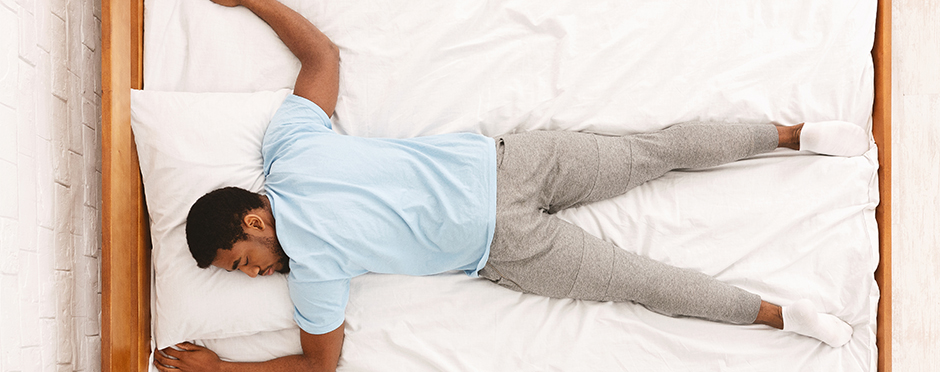
Why Does My Hand Fall Asleep at Night?
Leave a CommentNumbness and tingling in your hand can be described as “your hand falling asleep.” But what does this really mean? Tingling and numbness is a type of nerve pain that typically subsides with the limb’s movement. In this case, the pain is usually due to restricted blood flow. The tingling can feel uncomfortable and unpleasant, but it is only temporary. Sometimes people complain of waking up in the middle of the night with numbness or tingling in their hand or arm, they may not experience these symptoms during the day, or the symptoms are not as noticeable.
Why Do We Get Numbness or Tingling?
Nerves like space; nerves do not like anything taking their space away. Nerves also like oxygen which is brought to them through the blood. One way a nerve can tell you that it wants more oxygen is to cause numbness or tingling, which usually makes us move. We shake our hands or stomp our feet, which can “wake it back up.”
Examples of What Can Cause Numbness or Tingling
- Staying in one position for too long (ex: sleeping with your hand over your head, sitting cross-legged for an extended period
- Repetitive use of a specific body part (ex: repetitive hammering)
- Compression of the nerve or blood vessels by an external factor (ex: overly tight-fitting brace)
- Compression of the nerve or blood vessels by an internal factor (ex: tightness in a muscle, swelling)
What Are Some Examples That Can Cause Numbness or Tingling at Night?
1. Sleep Position
Sleeping on your stomach with your head turned the one side can lead to numbness or tingling in your hand due to the rotation of your neck possibly compressing the nerves. Sleeping with your arms overhead, either on your stomach, side, or back, can also contribute to feelings of numbness and tingling. These positions, with a lot of neck rotation or extended arms overhead, can compress the nerves that travel down to the hand. As stated above, when a nerve is compressed, it can cause feelings of numbness or tingling.
2. Carpal Tunnel Syndrome
Carpal tunnel syndrome is linked to numbness and tingling in the thumb or first two fingers. This is due to compression of the median nerve as it travels through the wrist into the hand through the carpal tunnel. Carpal tunnel syndrome is often associated with office or computer work. Many people who suffer from carpal tunnel syndrome report symptoms that wake them at night.
3. Cubital Tunnel Syndrome
Similar to Carpal Tunnel Syndrome, Cubital tunnel syndrome is linked to numbness and tingling of the pinky and ring finger. This is due to compression of the ulnar nerve at the elbow. This numbness and tingling can also wake people up at night, especially if sleeping with elbows in a bent/flexed position for an extended period of time.
How Can I Manage My Symptoms?
Changing Your Sleep Position
It is not recommended to sleep on your stomach for a variety of reasons. Side or back sleeping is a preferred position for sleep. If you have to sleep on your stomach, you can try to use a rolled towel under your forehead instead of a pillow to allow the neck to remain in a more neutral position rather than rotated to one side. Avoiding having your arm fully extended overhead when sleeping is also recommended. Try using a pillow near your chest to hug to help prevent your arm from going overhead when sleeping.
Sometimes the position of your wrist when sleeping can also lead to tingling in the hands. Many people sleep on their side in a fetal position with the arms and wrists tucked up under their chin which can lead to a lot of wrist flexion. Wearing a wrist brace to help avoid this over-flexed position in your wrist overnight can help with carpal tunnel-like symptoms.
If you are interested in reading more on sleeping positions and carpal tunnel, click here.
Physical or Occupational Therapy
Physical or occupational therapy treatment for hand numbness at night is individually based. Schedule a free assessment at an Athletico near you. Your therapist will help make recommendations for your sleeping position and positioning during the day at work or home. Therapy can also address any muscle tightness or muscle weakness in the neck, shoulder, elbow, or wrist that may be contributing to symptoms. Free assessments are available in-clinic or virtually through our telehealth platform.
The Athletico blog is an educational resource written by Athletico employees. Athletico bloggers are licensed professionals who abide by the code of ethics outlined by their respective professional associations. The content published in blog posts represents the opinion of the individual author based on their expertise and experience. The content provided in this blog is for informational purposes only, does not constitute medical advice and should not be relied on for making personal health decisions.
